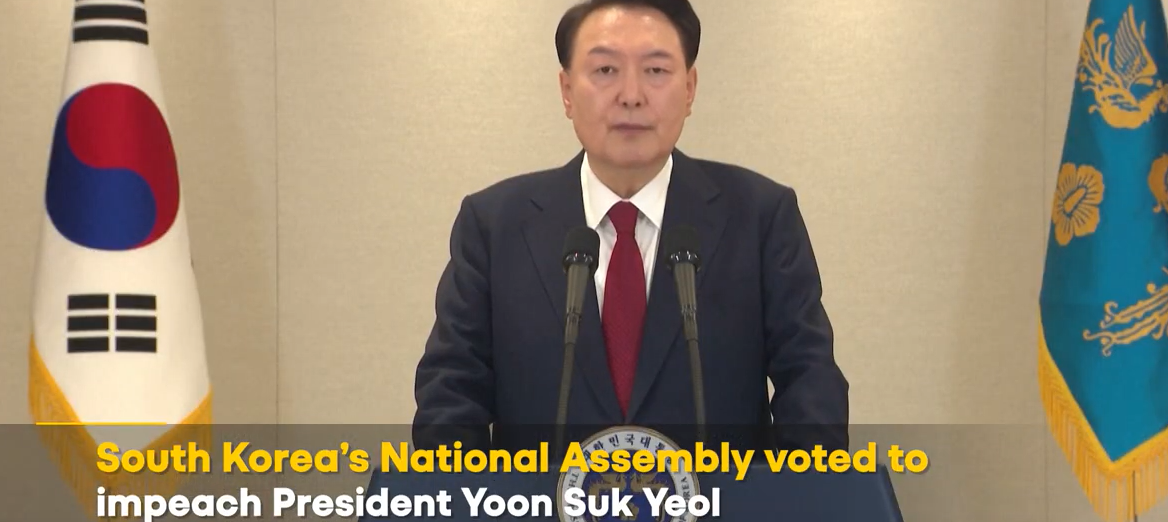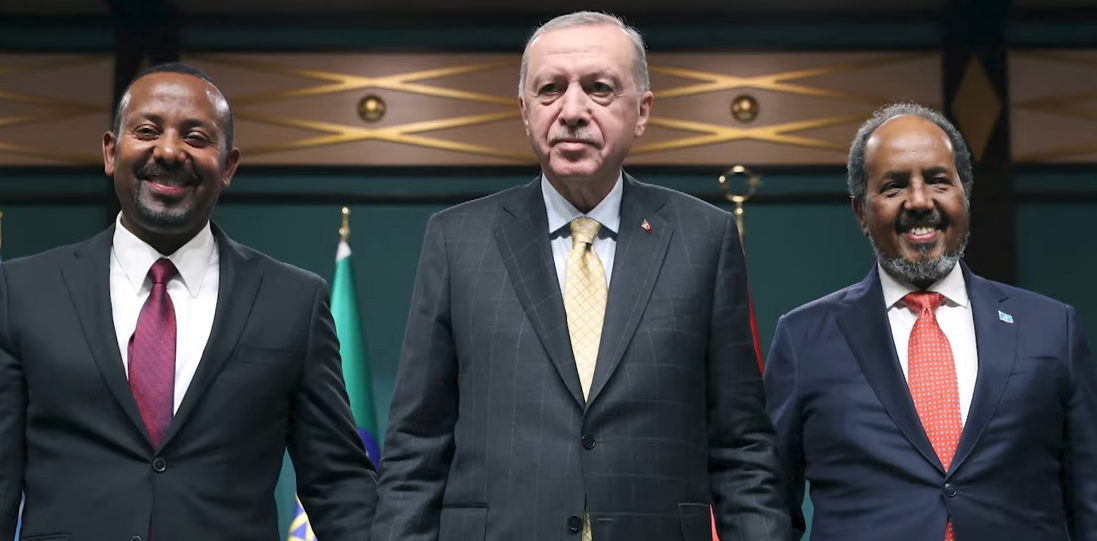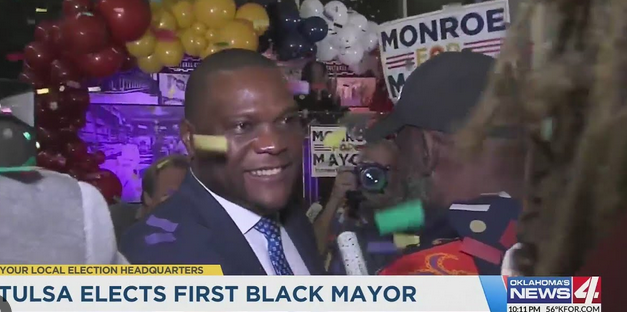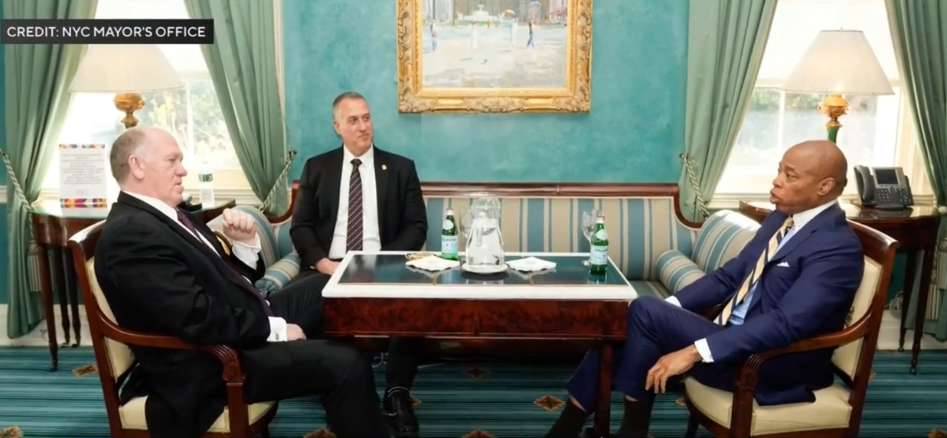Why wasn’t Karen Washington there? Photo: Cityfarmer.info
[Global Food Movement: Commentary]
Great farming is obedience to nature’s rhythms and laws. All of the answers we need can be derived from observing nature and her multiplicity of expressions.
One of nature’s founding principle is the creation of diversity. Diversity is resilience. As a farmer I have found that the fundamental principles of agriculture or natural law are transcendent. The same concepts are applicable to social, economic and educational systems.
As the health of a crop is dependent on the diverse nature of the ecology in which it’s grown, so is the health of the food movement dependent on the diversity of the people that are driving it.
So why was the New York Times Food for Tomorrow conference the equivalent of a big industrial monoculture?
Where were the leading African American voices in the Food Movement?
Where was Karen Washington, our queen bee, dubbed “urban farming’s de facto godmother” in a New York Times profile.
Where was Will Allen, our Lumbricus, our king of the soil?
Where was Malik Yakini, our quiet but purposeful rhizobium? These are the big names we know, nationally recognized; James Beard awarded farming/food heroes.
At this point in our global crisis why are we still playing out the old paradigm of the middle-aged to elder White male as the sole deliverer of wisdom and salvation?
At the conference itself, on November 11 and November 12, 2014 at Stone Barns Center for Food and Agriculture, in Pocantico Hills, New York, the more interesting concepts came from the people that didn’t quite fit that paradigm.
Take Ali Partovi — youthful, exuberant, innovative, and possessing “the optimism and audacity to think that if a new technique is superior, it can replace the old technique.” He asked us to “embrace capitalism to redistribute wealth and disrupt the status quo”.
He is using his capital to invest in Farmland LP a company that converts conventional farms to sustainable agriculture, tripling farm profits. The company also makes land available to progressive farmers via an affordable revenue-share partnership rather than the traditional cash lease.
There was Kellee James — young, female and the only African American who spoke on the podium. She is constructing a quiet revolution in the pricing, buying and selling of organic agricultural commodities.
Do you want to grow an organic commodity but need to know what the true market price for your crop is now or will be in the future absent distortions? Mercaris, co-founded by Kellee James, provides market data as well as being an online platform to trade organic non-gmo agriculture commodities.
Mercaris wants to reveal the real cost of organics so it can be accessible to all types of consumers while those along the value chain continue to earn a living.
Then there was Danielle Nierenberg, president of Food Tank a research organization; while sitting next to the representative from the megalith that is Wal-Mart, with balls to the wall, stated firmly that we need smaller and more medium-sized farms and not more large ones.
“It’s not about scaling up” she said as she flashed black-painted fingernails. It’s truly about scaling the things that help these farmers, that feed 80% of the world, do their work better. We need more stewards of the land.
While these ideas hold promise, time will tell how they will impact the food system; but it is new and needed thinking indeed. How can the soul of the farmer and the process of farming which informs his or her imagination be kept intact in a very structured farmscape as proposed by Farmland LP?
How will bringing organic to Wall Street affect the food system? Will the trading platform remain grassroots, value chain-focused and contracts traded on a first name basis? Will we fall into dogma and equate large farms as bad or will we use large scale to produce what nature grows on a very large scale; that is, not a carrot, or corn?
The words and perspectives from the majority, White male middle aged to elderly who were in attendance, are very relevant and appreciated. Who can argue the wisdom of Fred Kirschenmann, a pioneering voice in the organic farming movement, or turn a deaf ear to Dr. Peter Gleick’s insistence that we cannot talk of a Food Movement without considering the sustainability of our water sources, or Doug Rauch, C.E.O., Conscious Capitalism, Inc., on creatively reducing our waste stream through his new venture, Daily table, or the genius of Thomas Harttung of Asrstiderne in Denmark, who believes the future belongs to countless small farms with consumers participating in ownership and management decisions through the use of social media? These men get it.
Still, as Harttung spoke of urban and peri-urban farming, where was Karen Washington to truly inform the audience? We urbanites and semi-urbanites of color know fully that urban and peri-urban farming is critical to ecosystems restoration.
It’s not just about Washington. She represents all those voices from the frontlines; all the innovators of color that often are not acknowledged at these larger than life functions and whose input would be invaluable.
Mathematician Ralph Abraham’s work on complex dynamical systems has great potential to inform us about the interplay of all the components that make up and effect the food system; but how can we go across disciplines if we are still struggling with something as basic as inclusion?
Gerald Marzorati, the former editor of The New York Times magazine, put together what I call the United Nations of food conferences at Stone Barns; it was exceptional and electrifying, the collective IQ count could only be measured in exponent form, but there is no getting around it, some critical people were missing.
On his LinkedIn profile, Marzorati recalls his days as an editor at major U.S. magazines, including the New Yorker and Harper’s Magazine and states: “I am now in charge of the Times’s foray into the thought-leader conference business. I think of it as Times Live, a platform to bring people together around ideas and issues that should matter to us all: Education, Sustainability, Growth and Opportunities. The goal is to be producing these conferences around the world. Ultimately, I am responsible for figuring out who is on stage talking about what, as well as meeting revenue goals. It’s like being editor and publisher. It’s a great challenge.”
So I queried Marzorati about the absence of Karen Washington at the conference; I’ve never heard a more gracious apology and ownership of the omission.
Thank you to The New York Times for being bold and forward-thinking enough to put this together and to the host, Mark Bittman, for his relentless honesty which could be summed: “lets solve poverty to solve the food problem.”
His keynote and endnote are required listening.
Visit www.nytfoodfortomorrow.com to watch the full conference
The laws that govern great agriculture are transcendent. A great farmer lives what is practiced in the field.
In the field nature tell us that she is a singular multiplicity. Therefore that is what we should be; a multiplicity acting as one.
Hoping next year the organizers move in the direction of that paradigm.
Reach the writer via [email protected]








